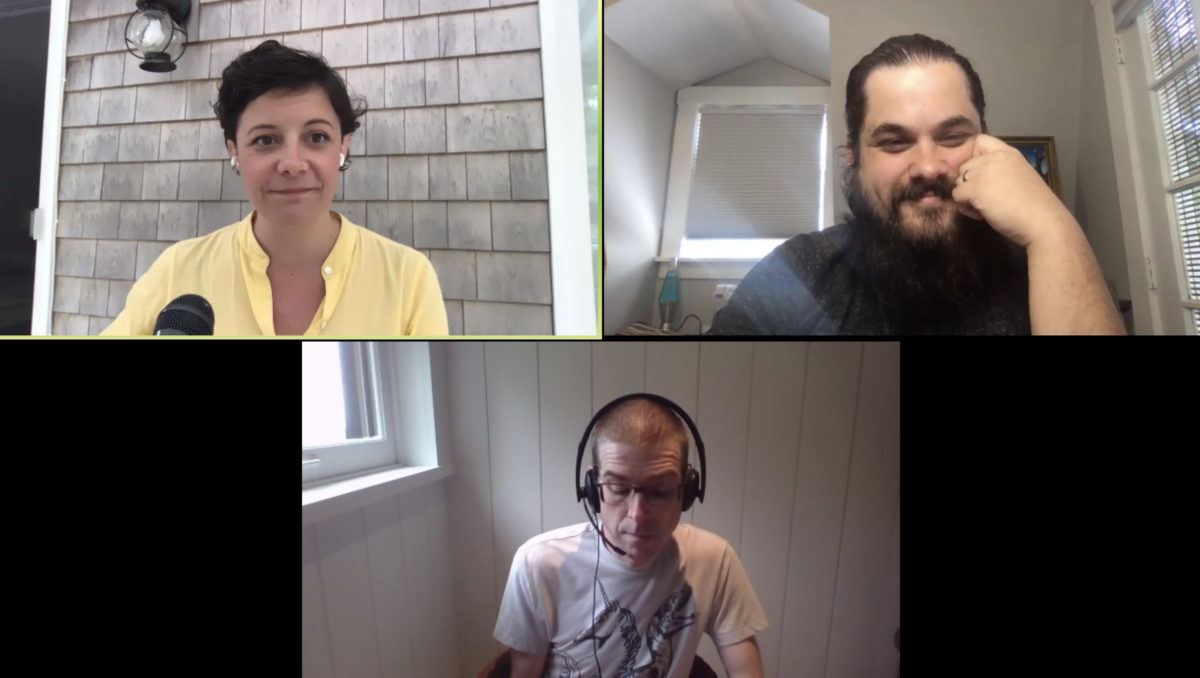Without Section 230, Tech Platforms Would be Afraid to Either Leave Content Up or Take it Down, Say Panelists
June 24, 2020 — In the wake of yet another clash between Twitter and President Donald Trump, the question of how social media platforms should be conducting content moderation has no clear answer, industry experts agreed Wednesday. “Often these debates about content moderation are strange to me beca
Em McPhie

June 24, 2020 — In the wake of yet another clash between Twitter and President Donald Trump, the question of how social media platforms should be conducting content moderation has no clear answer, industry experts agreed Wednesday.
“Often these debates about content moderation are strange to me because they presume that in an internet space, we can reach for perfection that we can’t in the real world,” said Dave Willner, former head of content policy for Facebook, at a panel hosted by Yale Law School.
“We as a species still fight wars, but everybody wants to know why Facebook can’t come up with a moderation standard that everybody likes,” he added.
Section 230 of the Communications Decency Act has featured prominently in the discussion surrounding online speech, facing widespread criticism from both sides of the aisle.
But eroding the controversial statute could have unintended consequences, panelists claimed, such as the impact on individuals working in content moderation.
“You would be afraid to take something down or leave something up, because you might put your entire company at risk,” said Kate Klonick, law professor at St. John’s University.
Former Twitter General Counsel Alexander MacGillivray cautioned that increasing the scope of content moderation in an effort to lift up underrepresented voices could run the risk of backfiring and ultimately giving more control to those already in power.
“All the answers to this are bad right now — there aren’t any good answers,” Willner said. “The government’s answers are worse, because they have the force of the law and the state behind them, whereas Twitter’s answers can be different than Reddit’s.”
Daphne Keller, director of the Stanford Cyber Policy Center Program on Platform Regulation, agreed with the value of allowing companies to form their own unique policies for content moderation.
“On the internet writ large, different platforms [are] converging on the same policies…and I think it’s a bad idea,” she said. “There are reasons that Reddit has one set of policies and Facebook has a different set of policies and that’s a good thing. It gives us a diversity and plurality of discursive communities to join.”
MacGillivray emphasized the importance of approaching the debate over Section 230 with an open mind, suggesting that the “old guard” should make room for new ideas.
However, he remained cautious about potentially drastic reforms to the statute, pointing out that the stakes were high.
“In particular, I would think a lot about the smaller platforms and how to make sure that they are still able to exist and flourish,” he said.
Section 230’s historical importance and future possibilities
Section 230 initially played an important role in allowing internet platforms to experiment and innovate different services without being held back by too many legal concerns, MacGillivray said.
“It started with started with a one page, ‘if it promotes Hitler and if it makes you feel bad, take it down,’ and moved to a 90-page wiki,” Klonick said.
Willner pointed out that there were only twelve employees on Facebook’s content moderation team when he started out.
“The rule set was similarly sparse — it essentially was a list of consensus decisions that the group had reached that they then wrote down for stuff that came up a lot,” he explained. “The origin of this was less some philosophical treatise [and more] an FAQ of, like, ‘we see a lot of naked people — here’s the rule for naked people.’”
As the platform’s popularity exploded internationally, the company had to create a more explicit set of standards to guide content moderation, Willner said.
“What 230 meant was that we didn’t have to talk about the law that much, and so it wasn’t a major presence in what we did, except as a set of guardrails around how you approach content takedown — you didn’t edit, you removed things,” he said. “It largely meant the conversations were driven by what the product was for.”
This allowed the overall conversation to be focused on products and users, he claimed.
“Frankly, we spent a lot more time talking about what openness and connectedness meant in practice, and how you balanced allowing people to say whatever they wanted with not allowing speakers to be excluded from conversation, than we did about the law,” Willner said.
Without Section 230, early internet platforms might have been overwhelmed with defamation cases, MacGillivray said.
“The amount of powerful people who didn’t like what was being said about them online has always been a lot — it does not go down,” he explained. “[Defamation was] the cudgel that certainly we saw a lot, and 230 provided us with a backstop.”
The removal of this backdrop could have negative implications for the future of online innovation, panelists warned.









Member discussion